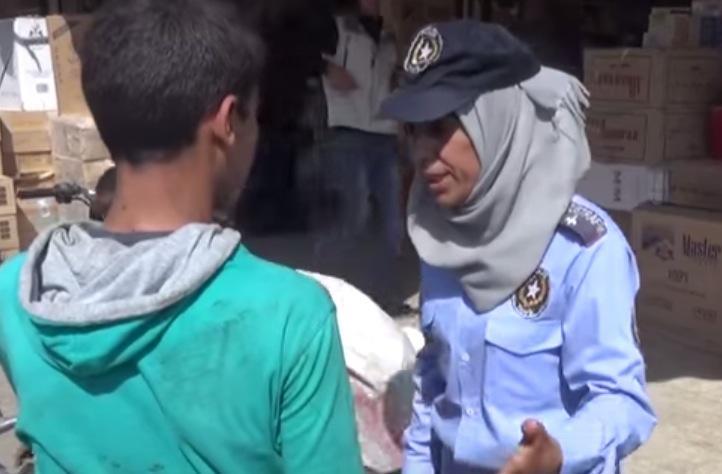Syrian women liberated from Isis are joining the police to protect their city
More than 50 women in Manbij have signed up to the police in recent months, inspired by the example of the female Kurdish soldiers who helped free them

Your support helps us to tell the story
From reproductive rights to climate change to Big Tech, The Independent is on the ground when the story is developing. Whether it's investigating the financials of Elon Musk's pro-Trump PAC or producing our latest documentary, 'The A Word', which shines a light on the American women fighting for reproductive rights, we know how important it is to parse out the facts from the messaging.
At such a critical moment in US history, we need reporters on the ground. Your donation allows us to keep sending journalists to speak to both sides of the story.
The Independent is trusted by Americans across the entire political spectrum. And unlike many other quality news outlets, we choose not to lock Americans out of our reporting and analysis with paywalls. We believe quality journalism should be available to everyone, paid for by those who can afford it.
Your support makes all the difference.Women in the northern Syrian town of Manbij are joining up to the local police force in record numbers to protect their hard-won freedoms, local news has reported.
More than 50 women have so far joined the recently established Asayish Police Force, created after the town was freed from Isis militants over the summer.
Manbij’s approximately 100,000 people were liberated by mostly Kurdish Syrian Democratic Force soldiers in August after two months of heavy fighting which the UK-based Syrian Observatory for Human Rights said killed more than 400 civilians.
Images and footage of residents celebrating the terror group’s defeat and hugging the advancing soldiers were shared around the world. Women threw off and burnt niqabs, men trimmed their beards, and people smoked in public after Isis’ brutal rule two-year rule over the town ended.
The first Arab woman to join the police, Zainab Ali, said she made the decision to fight for and safeguard women’s freedom following the experience of living under Isis’ interpretation of Sharia law.
“I am proud to join the Asayish [police] forces, especially after suffering a lot of suppression in my private life. Being a part of those forces would give me the opportunity to protect other women in my society and fight for their rights,” she told ARA News.
Before Syria’s civil war broke out in 2011, civil order in the multi-ethnic city was mostly maintained by tribal leaders.
The Asayish force was launched by the self-declared autonomous Kurdish administration of northern Syria, based in Rojava.
“Under Isis, women in Manbij have suffered a lot. We had no basic rights. Women had to stay indoors. Now the situation is completely different. Every woman has the right to criticise and actively participate in the society,” Fatima Khalaf, a member of Manbij’s Traffic Police said. “I feel myself free of all the traditional constraints now.”
When militants were driven from the city Manbij’s women quickly set about creating an all-female council to promote and protect their rights. The initiatives were inspired by the female fighters who helped drive Isis from the town, residents said at the time.
“Before the liberation of Manbij, women were extremely oppressed. However, now women’s rights are a priority for the local administration,” Ms Ali added.
Both men and women are now responsible for maintaining law and order and the ongoing operation to dismantle explosives Isis left littered around the surrounding countryside when they fled.
“Now we have more equality between men and women. This was our main demand,” Ms Khalaf said.
Join our commenting forum
Join thought-provoking conversations, follow other Independent readers and see their replies
Comments